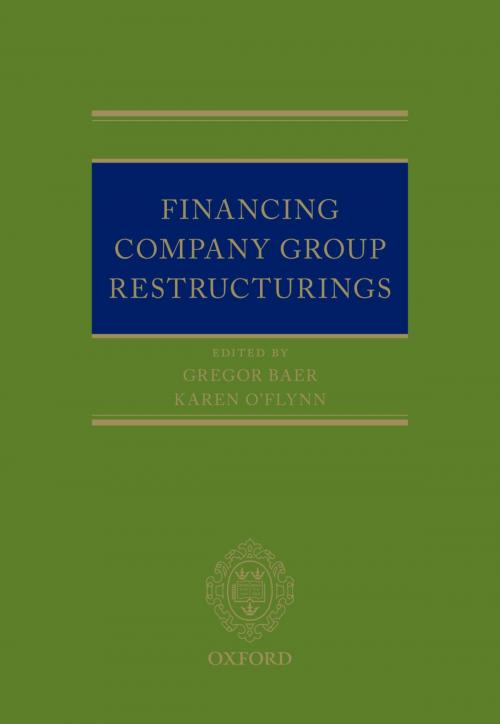Financing Company Group Restructurings
Nonfiction, Reference & Language, Law, Bankruptcy, Business & Finance| Author: | ISBN: | 9780191058356 | |
| Publisher: | OUP Oxford | Publication: | September 17, 2015 |
| Imprint: | OUP Oxford | Language: | English |
| Author: | |
| ISBN: | 9780191058356 |
| Publisher: | OUP Oxford |
| Publication: | September 17, 2015 |
| Imprint: | OUP Oxford |
| Language: | English |
This book provides the first comprehensive treatment of out-of-court restructuring and post-commencement insolvency financing in the corporate group setting, domestically and internationally. Bringing together a collection of distinguished contributors-academics and practitioners at the forefront of insolvency practice and law reform efforts-the book addresses and critiques "state of the art" practice and work-arounds for financing out-of-court restructurings as well as judicial reorganisations, going-concern liquidations and administration proceedings of financially distressed global business groups. The book opens with a detailed introduction from the editors which provides an overview of domestic law issues and an exploration of principles guiding judicial and administrative cooperation to facilitate group financing in cross-border cases. The final section analyzes regional and global law reform and harmonisation progress to date. This book is a valuable resource for practitioners who must structure (and courts that must approve) financing for global enterprise groups in reorganisation. With another wave of global corporate group failures anticipated, practitioners, courts and policy makers are well served by a work describing cutting-edge advances in this field in domestic and cross-border cases.
This book provides the first comprehensive treatment of out-of-court restructuring and post-commencement insolvency financing in the corporate group setting, domestically and internationally. Bringing together a collection of distinguished contributors-academics and practitioners at the forefront of insolvency practice and law reform efforts-the book addresses and critiques "state of the art" practice and work-arounds for financing out-of-court restructurings as well as judicial reorganisations, going-concern liquidations and administration proceedings of financially distressed global business groups. The book opens with a detailed introduction from the editors which provides an overview of domestic law issues and an exploration of principles guiding judicial and administrative cooperation to facilitate group financing in cross-border cases. The final section analyzes regional and global law reform and harmonisation progress to date. This book is a valuable resource for practitioners who must structure (and courts that must approve) financing for global enterprise groups in reorganisation. With another wave of global corporate group failures anticipated, practitioners, courts and policy makers are well served by a work describing cutting-edge advances in this field in domestic and cross-border cases.















